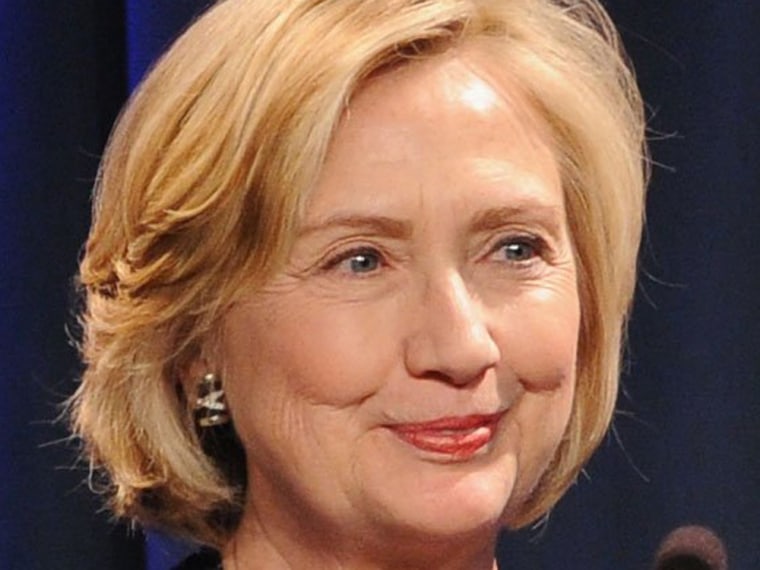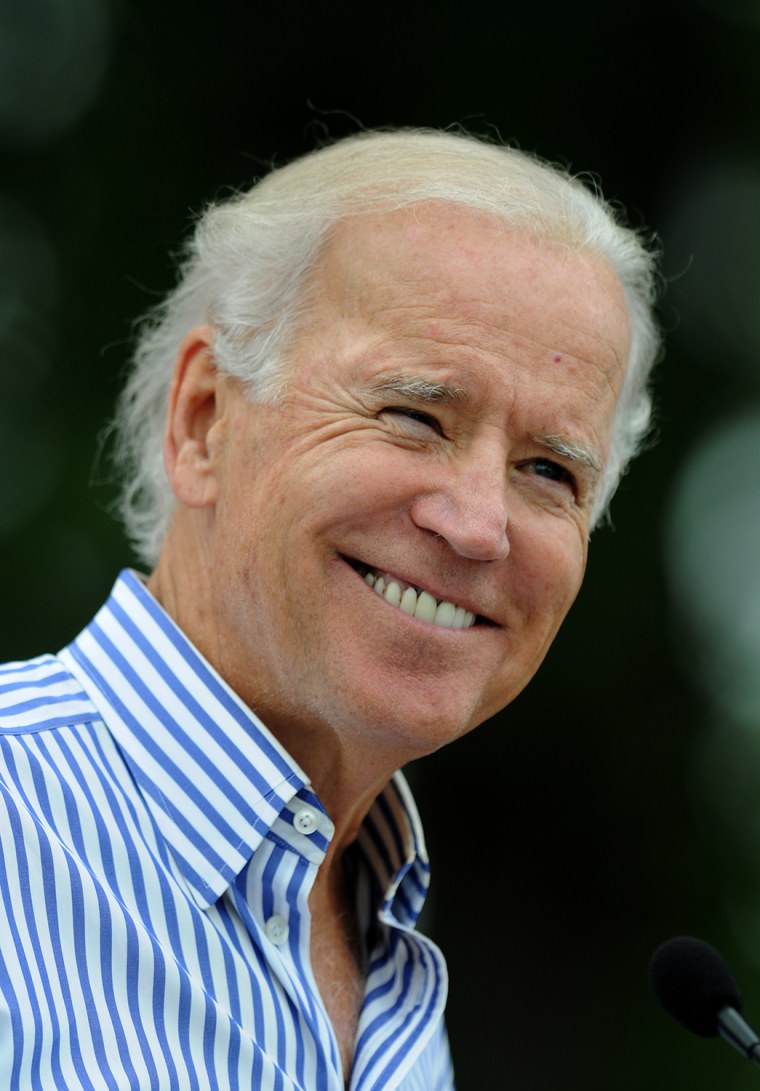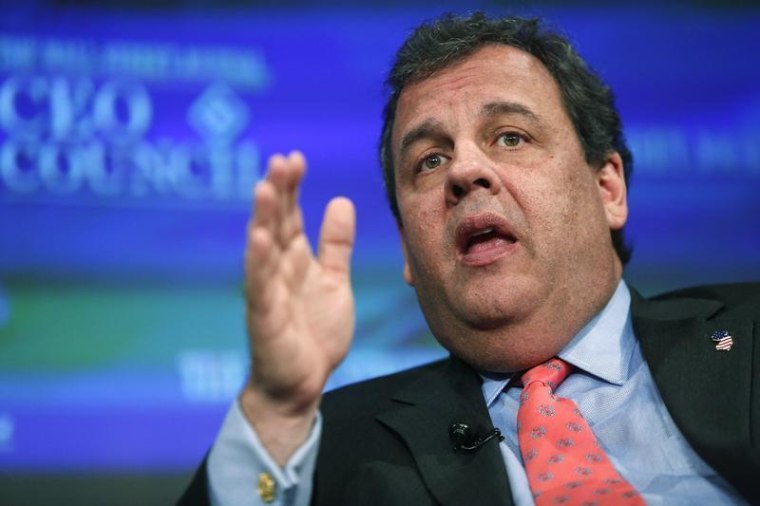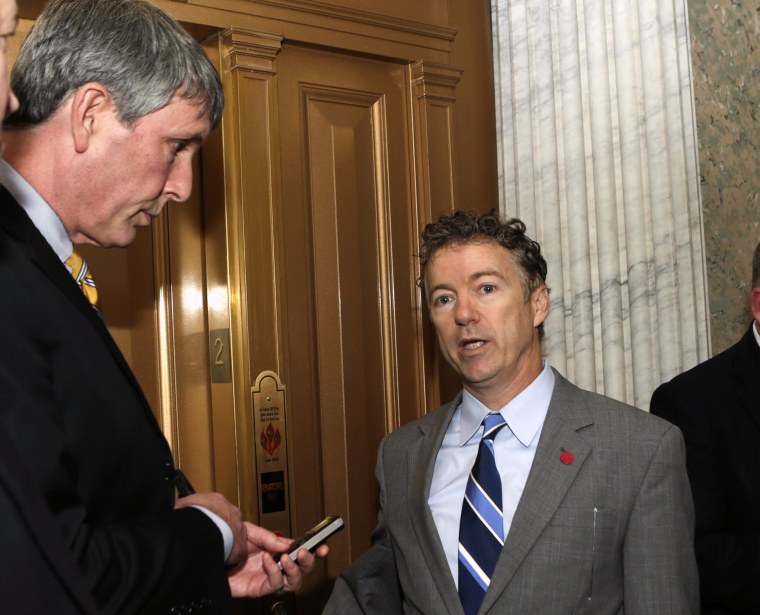With a new year approaching, Americans around the country turn to self-improvement as they boldly embark on new gym memberships, frugal savings plans and well-intentioned strategies to break their bad habits.
The nation’s next crop of aspiring presidential candidates, who are likely looking to 2014 as a year to assess their weaknesses and build their cases, are no exception.
It’s still early, but with two nominations and lots of political cash up for grabs, most of these contenders are already well aware of how they’ll have to craft their political personas before making it official.
Here’s our recommendations for some of the most likely contenders as they mull their own goals and resolutions for 2014:
Hillary Clinton – Keep it fresh
The former secretary of state should be feeling pretty good about a possible 2016 run. A December Quinnipiac survey showed her walking away with the nomination with the support of two-thirds of Democratic voters, and an NBC head-to-head poll showed her beating potential GOP pick Gov. Chris Christie by 10 points.

But in a redux of her battle against then-Sen. Barack Obama during the 2008 primary, Clinton will again have to differentiate herself from the man who went from a harbinger of hope to a president with sinking approval ratings.
“Politics is a team game,” says Peter Brown, assistant director of the Quinnipiac University Polling Institute, who points to Obama’s unpopularity as a drag on Clinton’s national approval ratings. “The captain of the Blue Team, President Obama, isn’t doing well these days and it rubs off on members of the team.”
Clinton ultimately lost her last bid to lead a country hungry for a fresh kind of leadership. This time, she’ll have to thread the needle between displaying the political experience she gained during the past administration and appearing to maintain the Democratic status quo.
Joe Biden – Accentuate the positive
In a November focus group of Cincinnati voters conducted by NBC News, the Wall Street Journal and the Annenberg Public Policy Center of the University of Pennsylvania, Biden was a relatively sympathetic figure to Democratic-leaners, but not a strong one. Those in the group who were generally supportive of the president and his team insisted that Biden is “trying” to be a good leader and to ease governance with a stubborn Congress. Others in the group were less forgiving, bluntly labeling the vice president “stupid.”

While his favorability with Democrats remains relatively high, it’s much more tempered than the fervor surrounding Clinton. (Seventy percent of Democrats in the recent Quinnipiac poll had a favorable view of Biden, versus a whopping 92 percent for Hillary Clinton. And a November poll showed that just 51 percent of Democrats said they think Biden “would make a good president,” versus 38 percent who said the opposite.)
If he wants to stay in the game, he’ll have to convince voters who like him that he’s not just “trying” – he’s succeeding as a savvy deal-maker whose diplomatic skills really are a “big ****ing deal.”
But with the kind of numbers he’s posting now, that’s going to be a heavy lift for the veep.
Other 2016 Democrats – Introduce yourself
Ask a regular Democratic-leaning voter how he or she feels about Martin O’Malley, Andrew Cuomo or Brian Schweitzer, and you’re likely to get a shrug or a “who?” Besides Clinton and Biden (and Sen. Elizabeth Warren, who says she’s not running), no Democrats are registering more than a few percentage points of support.
Some liberal Democrats say that there’s a vacuum to Clinton’s left on economic issues that could be filled by a new voice – much like how Obama pressured Clinton over her early support of the Iraq War.
“Wall Street and Social Security are the new Iraq,” says Adam Green, the head of the Progressive Change Campaign Committee. “These are issues that Democratic primary voters will vote on, and if she’s not aligned with Elizabeth Warren on those issues, it’s likely that some candidate is going to see that opportunity and decide to run.”
Warren – dubbed the “North Star” of Green’s progressive organization -- has said she’s not running for president, but Clinton can expect her acolytes to pepper her with questions about issues like banking regulations and income inequality.
“The hope is that she does the right thing,” Green says of Clinton. “A lot of people are ready for Hillary to be bold and to be populist. We’re rooting for her to do that, but if she doesn’t, it’s to her own detriment.”
Former Montana Gov. Brian Schweitzer, one possible 2016 contender, appears to be eyeing the chance to jump in if Clinton doesn’t assuage the concerns of the party’s populist wing.
“The question that we have is, will it be the Hillary that leads the progressives?” he said on MSNBC this week. “Or is it the Hillary that says, 'I'm already going to win the Democratic nomination, and so I can shift hard right on Day 1.?' We can't afford any more hard right.”
Chris Christie – Break out of the Acela corridor
One of the most striking findings from that NBC/WSJ/Annenberg focus group in Ohio was just how “meh” participants were about the governor of New Jersey.

“Chris Christie was a non-personality," said pollster Peter Hart, who conducted the focus group. "We talk about him as being big and omnipresent; he was small and insignificant."
Sure, he’s got a lead in the fragmented polling of GOP contenders, and he’s the talk of the Morning Joe crowd. But some of the country’s influential early voting populations are not so jazzed about the man who won an overwhelming re-election in a deep blue state.
He’s tied for fifth place in the Des Moines Register’s latest poll of Iowa Republicans, and his national approval ratings among self-described conservatives are lower than those for firebrands like Sens. Rand Paul and Ted Cruz.
“The question is that the Republican presidential primary is dominated by conservatives, and there are some who are just not enamored with Mr. Christie,” said Brown, who noted that Christie garners impressive support among independents. “But there’s still a long way to go.”
Rand Paul – Focus on the family
Every politician has to balance family and his career, but no clan did more thinking out loud about a presidential run in 2013 than the Pauls. The Kentucky senator has openly said he’s considering a bid, while his famous father former Rep. Ron Paul told CNN that he thinks his son “probably will” go for it. But Rand’s wife Kelley Ashby – a former political consultant – has said she’s not sold on the idea because of today’s culture of “character assassination.”

“When I think of the tens of millions of dollars in opposition research that they’d be aiming right at us and our family — that’s what it’s about,” she told reporter Jason Horowitz earlier this year.
The younger Paul has been candid about how the first political battle of his campaign would have to be won in his own living room. “If I’m a very able politician, I’ll tell you in a year whether I’m able to persuade my wife,” he told inquirers at a Detroit speaking engagement. “Right now, I don’t know yet, but I thank you for your interest.”
His father’s big name is a strength for Paul, offering him a built-in constituency and the outlines of a political organization in key primary states. But the senator will also have to differentiate himself as a more accessible version of the libertarian patriarch if he wants to succeed electorally where his dad was unable to break through.
Ted Cruz – Grow big or go home
Cruz was unquestionably a breakout conservative star of 2013. After pulling off an upset Senate primary win against a well-funded lieutenant governor, Cruz bounded from relative obscurity to the national spotlight after he led the conservative fight to defund Obamacare – and became the face of the October government shutdown. He handily won this year’s CPAC straw poll and made the shortlist for Time’s 2013 person of the year.
But when it comes to the numbers, it’s a less rosy picture. The latest NBC/WSJ poll showed Cruz upside-down with non-Tea Party Republicans. In Iowa, a state ripe for a rock-ribbed social conservative to make a play, Cruz has a tepid 46 to 17 percent approval rating even among Republicans, and he gets handily beaten by Clinton in a hypothetical head-to-head matchup.
As with many candidates, there’s also a big chunk of Americans who haven’t been focused enough on the political landscape to form an opinion yet. That could signal that he has room to grow with small-government voters, but it might also mean that he could maintain more influence as a thorn in the side of establishment senators than he would on the national campaign trail.
Other 2016 Republicans – Build a case
The wide-open GOP nomination race could get crowded. But unlike last cycle’s parade of contenders who turned out to be better candidates for a cable TV gig than for president, there’s no shortage of experienced Republican pols who could catch a wave and ride it to the nomination. Budget whiz Rep. Paul Ryan (recently aglow from some attention-catching poll numbers in Iowa), former Florida Gov. Jeb Bush and Sen. Marco Rubio could all position themselves as pragmatic candidates with an eye for reshaping a more modern GOP.
And don’t forget veteran candidates who may be returning for another try: Rick Perry, Mike Huckabee and Rick Santorum could each make a convincing play for Iowa and South Carolina evangelicals. For these potential candidates, the coming year’s outreach and alliances will show who’s got a realistic path to 1600 Pennsylvania Ave., and why.